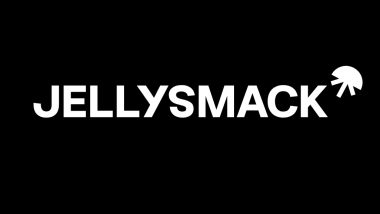Jellysmack Layoffs staff due to Restructuring
Jellysmack, a SoftBank-backed tech startup that has risen to prominence in the creator economy, is facing significant restructuring. According to reports, the company is laying off employees in both the United States and France as it scales back its content creator program. The decision comes after Jellysmack raised significant funding but struggled to maintain the growth expected by its investors. The layoffs and reorganizations signal a narrowing of the company’s focus as it looks to prioritize intellectual property (IP)-based content ventures, like its YouTube channels.
Jellysmack confirmed to Business Insider that 22 employees in the U.S. will be affected by the layoffs, with more cuts expected in its French office over the coming months. The layoffs come amid uncertainty about the startup’s path forward, following challenges it has faced in the evolving creator economy.
The decision to reduce staff is part of a larger organizational adjustment, aimed at better aligning Jellysmack’s resources with key growth areas. A company spokesperson told Business Insider that Jellysmack is making these changes to focus more on content businesses where it owns the intellectual property, which have shown continued success, particularly on platforms like YouTube.
Shifting Focus to IP-Based Ventures
Jellysmack, which launched in 2016, started as a content creation company producing its own YouTube content. Over time, it transitioned to working with high-profile creators like MrBeast and PewDiePie to help them edit and distribute their content on platforms such as Facebook and Snapchat, capturing additional ad revenue. The company saw early success with this model, using creators’ existing content to leverage additional monetization opportunities.
However, recent changes to platform monetization models, particularly on Meta’s platforms, have impacted the viability of this business strategy. The company has acknowledged that the new, less transparent monetization framework introduced by Meta (which owns Facebook and Instagram) has made it harder for creators to predict and optimize their earnings. As a result, Jellysmack is scaling back on its Creator Program on Meta, instead prioritizing its business units that manage intellectual property.
Among the content properties Jellysmack will now focus on are YouTube channels like Gamology, House of Bounce, Beauty Studio, and Oh My Goal. By owning and controlling these channels, Jellysmack can secure more stable revenue streams and has greater autonomy over monetization strategies. The company remains committed to supporting its key creator partners, ensuring that they continue to benefit from Jellysmack’s platform, even as it retreats from certain operations.
Previous Struggles and Pivoting Business Models
This isn’t the first time Jellysmack has faced financial and operational challenges. In December 2022, the company experienced a contraction in monetization across several social media platforms, leading to another round of layoffs. At the time, CEO Michael Philippe indicated that changes in the digital advertising market were impacting creators’ ability to generate revenue, creating uncertainty around Jellysmack’s business model.
The company’s rapid expansion into multiple areas of the creator economy further strained its operations. In addition to helping creators monetize their existing content, Jellysmack launched new arms, including JellySmash Productions, a production house, and Jelly X, an AI-powered assistant. Additionally, in 2022, the company set aside $500 million for a program called JellyFi, which licensed creator catalogs. However, this division was sold to Copyright Capital at the beginning of 2024, signaling a strategic pivot away from broader content services.
According to a former Jellysmack employee, the company has shifted its business model in recent years, resembling a holding company rather than a traditional creator-focused startup. Despite Jellysmack’s efforts to diversify into various aspects of the creator economy, the business faced increasing difficulties. In May 2023, a Business Insider investigation highlighted the challenges Jellysmack encountered after raising substantial funds, raising questions about its long-term sustainability.
Jellysmack is not alone in facing challenges within the creator economy. Many startups in the space, such as Cameo, have struggled to meet the growth expectations of venture capitalists. In Jellysmack’s case, its partnership with SoftBank, one of the world’s largest technology investors, has placed the company under immense pressure to deliver exponential growth. However, the shifting nature of platform monetization models and the volatile nature of digital advertising have created headwinds for the company.
The recent decision to scale back on its Meta-focused content creator program and prioritize IP-based content suggests that Jellysmack is narrowing its focus. This shift could help the company stabilize its operations and create more predictable revenue streams. By concentrating on its proprietary YouTube channels, Jellysmack has more control over the content it produces and distributes, which could offer more sustainable growth in the long term.
As Jellysmack continues to adjust its business strategy, the company’s future remains uncertain. The layoffs and restructuring efforts reflect the challenges many companies in the creator economy are facing as platform policies evolve and digital monetization strategies become more complex. For Jellysmack, the focus on intellectual property and original content could be a lifeline, allowing it to build a more stable foundation in the highly competitive digital media landscape.
Despite these challenges, Jellysmack remains committed to supporting its creator partners and finding new ways to leverage its platform for future growth. Whether this pivot to IP-based ventures will be enough to stabilize the company remains to be seen, but for now, Jellysmack is realigning its priorities to navigate the shifting tides of the creator economy.


Comments are closed.